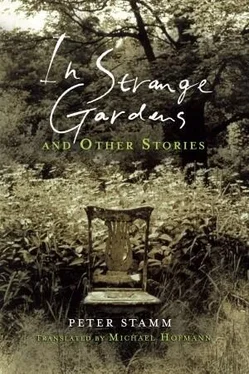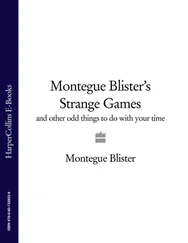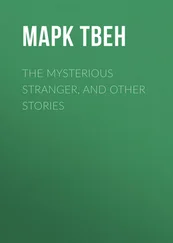David thought about how someone somewhere in this city had severed Adam’s limbs, his little arms and legs, with an ax, a carpet cutter, he couldn’t imagine. Someone would have to atone for what had been done to Adam.
David saw himself building a kite for the little boy. He wasn’t able to tell him much more than how to glue the wooden struts together, how to fix the string to them, the type of glue you used to attach the paper. He saw the child holding the kite, he saw himself running across a large meadow, with the string in his hand, both of them now were running. Let go, shouted David, and Adam let go of the kite, and it shot up into the air. David saw himself standing in a meadow, with the string in his hand. He looked up, Adam looked up. He felt the gentle tug of the kite. He was exhausted from running. Then Adam went over to him, and he handed him the string and laid his hands on his shoulders and said, careful, very slowly, I’ll hold you. It was just a kite, but Adam would remember it, even if the world split into two halves.
It was very quiet in the apartment. Only now did David register the quiet noises coming from the apartments on either side. He heard running water, footfalls, a radio. He got up, and went out onto the balcony. There was the Japanese woman, watering her plants that were growing in large ceramic pots. He said hello, and she said hello back.
“I’m your new neighbor,” he said.
“ Nice to meet you ,” said the Japanese woman, with a smile.
“ Nice to meet you, too ,” said David. He wanted to say something else, but instead he went back into his apartment. There’s no hurry, he thought, everything will sort itself out.
We sat on our packs on the platform. Daniel and I had taken off our T-shirts and were sitting there stripped to the waist, Marianne was wearing cut-off jeans and a bikini top. We were sweating. The tin roof cracked in the heat, and the hot air simmered over the rails. The train would be at least two hours late, the stationmaster had told us. For once, we weren’t even annoyed; it struck us as miraculous that there should be trains running in this heat.
“Too bad we don’t have any music,” said Marianne.
The station café was shut. Daniel said he would go into the village and find some ice cream. He was gone a long time, and when he finally came back the ice cream was already all soft, and we ate it in big bites. Then we heard the whistle of a locomotive. Not even one hour had passed. In the harsh light, a train emerged. It looked as though it were hovering over the rails. Very slowly it came nearer. The stationmaster came out of his office. He was wearing a short-sleeved shirt and a cap. Slowly the train drew into the station, and moved past us. The brakes squealed long and loud. The cars were old. They were painted white, and had red crosses painted on the sides. At last the squealing stopped, and the train jerked to a halt. Then there was silence.
The white train stood there, and nothing happened. Only the telephone kept ringing in the station office, and finally the stationmaster went back into his office, and shortly afterwards the telephone stopped ringing. A fat man in black clothes rapidly crossed the parking lot next to the station. He was sweating, and mopped his brow with a white handkerchief. Shortly before he reached the train, a door opened, the man went inside, and the door shut again.
“Your back is getting all red,” said Marianne. “Do you want me to put some lotion on you?”
“What is it with that train?” asked Daniel. He got up and walked down the platform to the very end of the train.
“All sick people,” he said as he came back. “A special train, going to Lourdes.”
I noticed that the blind in one of the windows had been pushed very slightly up. A face appeared in the narrow crack. Someone was looking at us. Then blinds started going up in some of the other windows, and other faces peered out at us. Some people dangled their arms out of the windows. In some compartments there was no one looking, but even there the blinds had been pushed up a little, and I could see beds with people lying on them, moving. I saw a back, a head, a leg, sometimes a pillow that was being turned over. The sick people seemed to be in constant movement, they really seemed not to be well, they must be in pain, or suffering from the heat. They seemed to me to be very far away from us. A nun in white robes and a white winged bonnet was looking at us from one window. Her face bore a vaguely triumphant expression.
“All sick people,” said Marianne. “Honestly, you’d have thought they’d never seen a bikini in their lives, the way they’re staring.” She stopped rubbing sunscreen into me, turned away from the train, and pulled on a T-shirt.
“It must be bloody hot in there,” I said.
“Well, we’ve got exactly the same thing ahead of us, too,” said Marianne. “Do you suppose they’re infectious?”
“Why are they staring at us like that?” I asked.
There was a deathly hush. Only occasionally someone would cough. I lit a cigarette.
“Sometimes I think life would be more straightforward if you were ill,” said Daniel. “Then you would know what to do, at least.”
“Do you think the sick people believe in it?” asked Marianne.
“Sure,” I said, “but it won’t do them any good.”
In the window immediately in front of us stood an old woman. Her arm hung down inertly. She was moving her fingers as though to test the material, or letting sand trickle through them. Behind us there was a noisy clatter. The metal shutters of the station café were being drawn up. A man in a white waistcoat brought a few plastic tables and chairs out onto the platform. When he disappeared back into the restaurant, I followed him.
“Water,” Marianne called after me, and Daniel: “Me, too.”
At the bar stood the stationmaster, who must have come in through the side entrance.
“A fatality,” he said to me, and jerked his head in the direction of the white train, “and in this heat.”
“It helped an aunt of mine,” said the barman, “she had shingles. When she got back from Lourdes, it was gone. But the miracle wasn’t confirmed. It made her so angry.”
I ordered drinks for us.
“You’re young,” the stationmaster said to me. “I know when I was your age, I didn’t use to think about things like that. A healthy constitution is the best present.”
When I emerged from the café, Marianne said: “They’re taking someone off the train.”
“A fatality,” I said. “I know. I heard.”
The door of one car had been opened. Standing with his back to us was a man in a luminous orange waistcoat. His neck was glistening with sweat. He carefully backed down the steps, followed by a stretcher, followed by a second man in an orange waistcoat. The fat man in the dark suit and a nun brought up the rear. The sick people were now staring at the little group that had stopped next to the train. Then the nun ran along the train with little short steps,calling something, and flapping her hands, as though to shoo away chickens. A few of the sick people drew their heads in. Daniel laughed. The two ambulance men carried the stretcher away. The priest followed them.
“Can dead people sweat?” asked Daniel. “Or does all that stop right away?”
“They all knew it,” said Marianne, “but they all kept staring at me anyway. Isn’t that horrible?”
“I’m sure they must expect losses,” said Daniel.
“It’s horrible,” said Marianne, “someone dies before our very eyes, and I go on rubbing cream into your back to stop you getting silly sunburn.”
“He was dead when they got here,” I said, “that’s why they made a stop here. That’s why they traveled so slowly.”
Читать дальше












